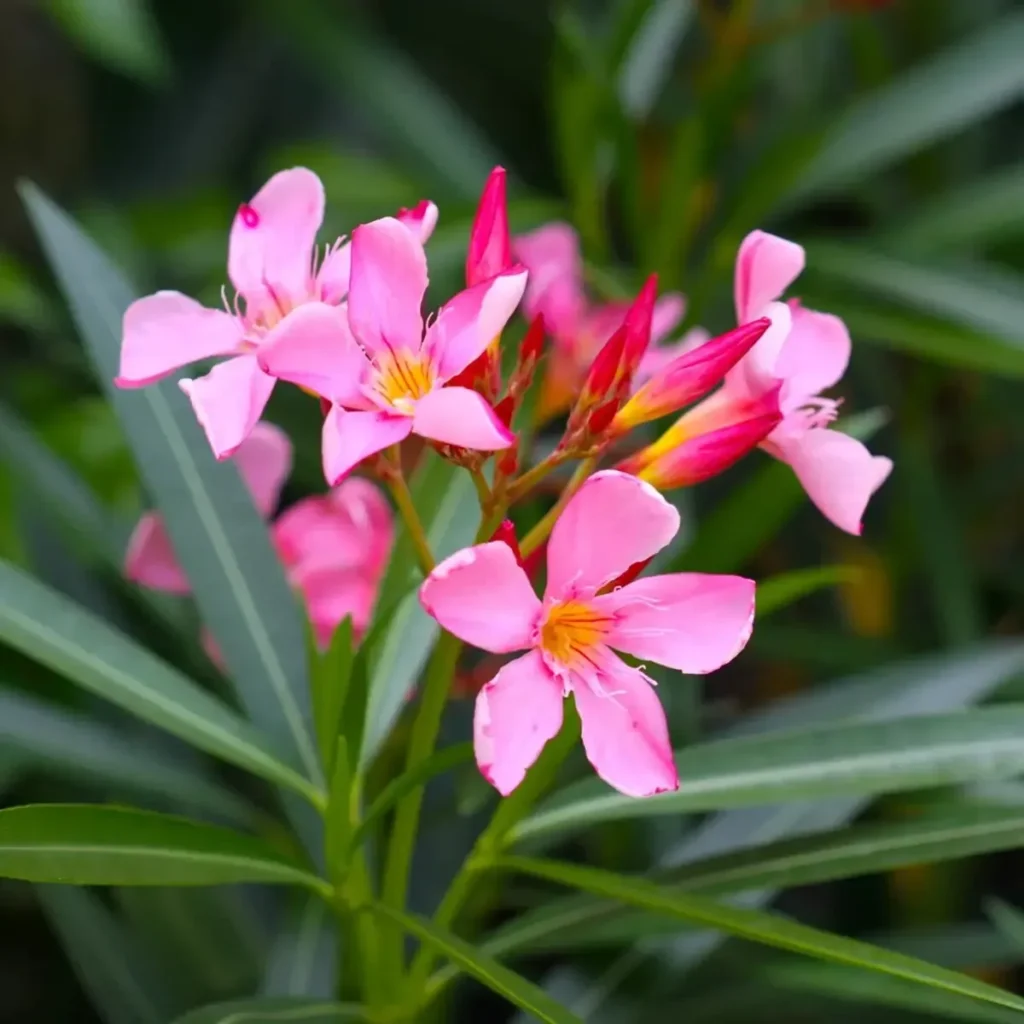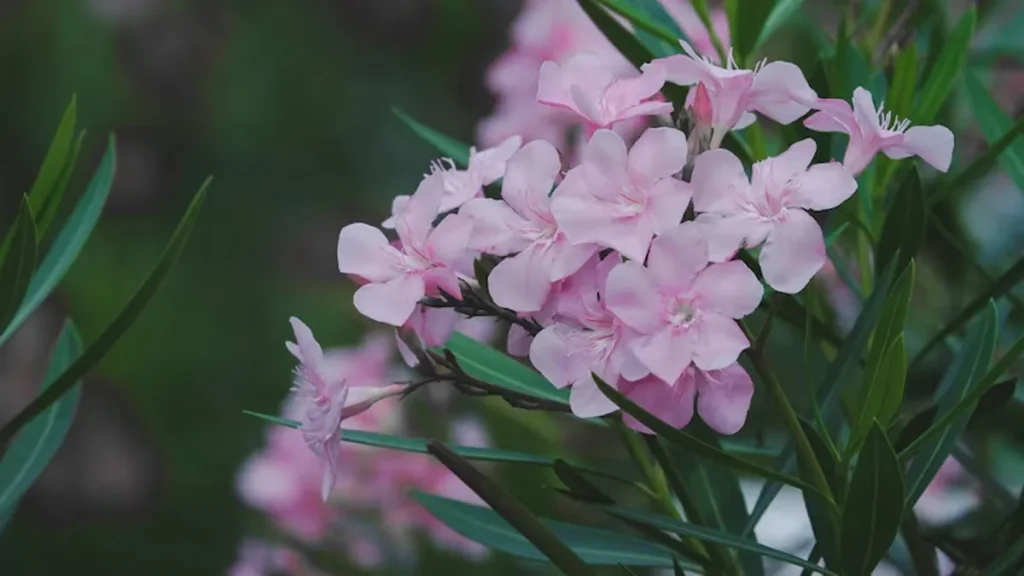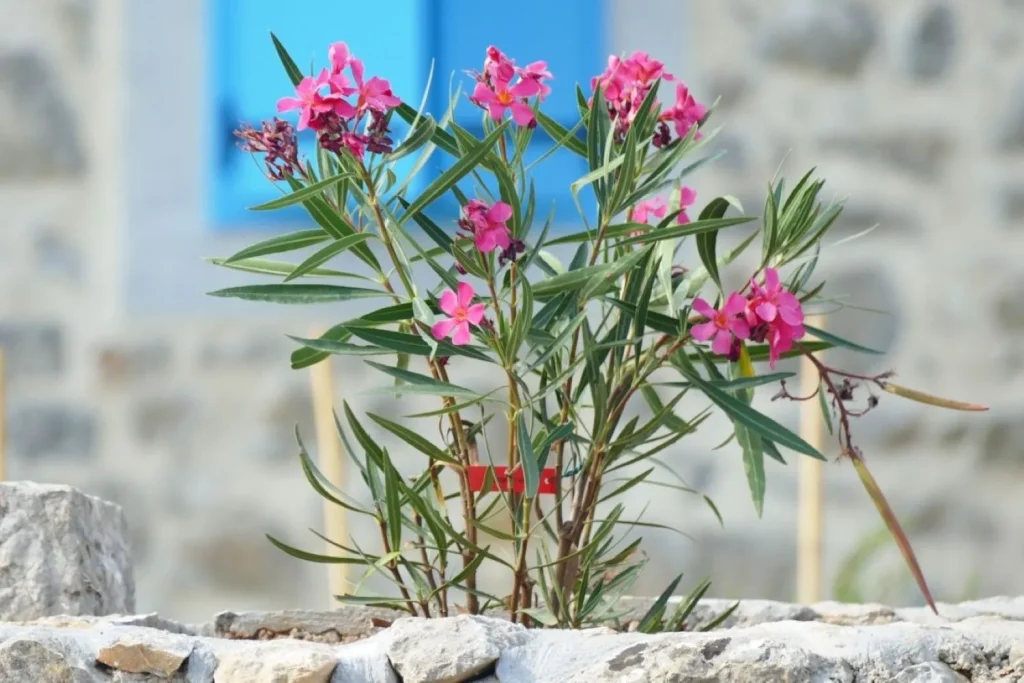Authorities in Abu Dhabi have announced a ban on the production, cultivation, propagation, and trading of oleander plants. This decision is in line with both local and federal regulations, aimed at protecting the community, especially children and pets, from the dangers posed by this toxic plant. The Abu Dhabi Agriculture and Food Safety Authority (ADAFSA) has emphasised the importance of this measure to prevent poisoning incidents.

The Risks of Oleander
Oleander is a perennial shrub commonly found in rocky valleys and often planted for its aesthetic appeal due to its dark green leaves and vibrant flowers. However, all parts of the oleander plant, including its leaves, stems, flowers, and seeds, contain toxic substances that can adversely affect the heart. Ingesting even a small quantity can lead to severe symptoms such as nausea, vomiting, diarrhoea, irregular heartbeat, and potentially death.

Community Cooperation Required
ADAFSA has urged residents to cooperate with the authorities by safely disposing of oleander plants and reporting any violations of the ban. The agency advised against touching or consuming unknown plants. If someone comes into contact with a toxic plant, they should immediately contact the Poison and Drug Information Services (PDIS) hotline at 800424, which is available 24/7.

According to Resolution No. (4) of 2024, all establishments and individuals must comply with the ban and ensure the safe removal of oleander within six months from the date of publication in the Official Gazette.
Regular Inspections and Public Awareness
The resolution also mandates that relevant authorities conduct regular inspections to remove oleander from urban areas and raise public awareness about its dangers. The ban supports efforts to maintain public health and safety while also preserving the environment and encouraging scientific research. However, cultivation and circulation of oleander for research purposes are allowed with prior approval from ADAFSA.
Recognition of Oleander’s Toxicity
The Department of Health – Abu Dhabi has included oleander on its list of poisonous plants in the UAE. The Ministry of Climate Change and Environment has similarly advised against planting oleander in public parks, protected areas, schools, and other frequently visited locations, also excluding it from the municipal guide on public afforestation management.

Commitment to Community Safety
Mouza Suhail Al Muhairi, Deputy Director General for Regulatory and Administrative Affairs at ADAFSA, stated that banning oleander cultivation is a proactive measure to safeguard public health. She emphasised the agency’s commitment to ensuring the safety and well-being of the community, particularly for vulnerable populations like children and pets.
Al Muhairi noted that this ban is part of a broader strategy to create a safe and healthy environment while preserving Abu Dhabi’s biodiversity. She added, “Oleander poses a serious risk, and removing it from urban areas will help protect both people and animals.”
Collaborative Efforts for Implementation
Dr. Salem Al Kaabi, Director General of Operations Affairs at the Department of Municipalities and Transport, expressed that the collaboration with ADAFSA demonstrates a commitment to community safety and enhancing the quality of life in the emirate.
The decision aligns with the One Health approach, which recognizes the interconnectedness of human, animal, and environmental health. Al Muhairi emphasised that the success of this initiative heavily relies on community awareness and cooperation, urging everyone to assist in the safe removal of this hazardous plant.
